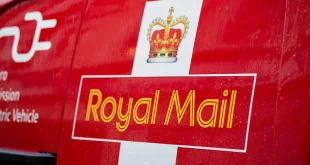Six projects have been given the green light by the UK Civil Aviation Authority to test drone use in deliveries, infrastructure inspections and by the emergency services.
The aim of the trials is to help safely integrate drones flying beyond visual line of sight (BVLOS) of their operator in UK airspace.
The flights use advanced technologies for navigation, control and to detect other aircraft.
One of the six projects selected, Amazon Prime Air will trial its consumer drone delivery service, which is designed to get small packages to customers in less than an hour.
The National Police Air Service (NPAS) will also explore uncrewed aircraft use in policing after establishing its Futures and Innovation Team in 2021.
The team’s objectives were to investigate beyond visual line of sight capabilities and its potential adoption as part of a blended fleet.
NPAS’s ambition is to fly an uncrewed aircraft, beyond visual line of sight, over a six-month period, in an environment that is representative of where NPAS crewed aircraft would be tasked.
It will look to test, and verify, not only the payload capabilities, which are identical to the performance of our crewed aircraft, but also validate the onboard detect and avoid capabilities. This will allow NPAS to understand better what future air support capabilities it could adopt.
The trials will gather key safety data, such as how drones detect and avoid other aircraft, the electronic signals they can send to be able to be visible to other airspace users and air traffic control.
This will support the regulator’s ongoing development of policy and regulations so that drone flights can be fully integrated with other airspace users.
“These innovative trials mark a significant step forward in integrating drones safely into UK airspace,” explained Sophie O’Sullivan, director of future of flight at the UK Civil Aviation Authority.
“By supporting projects ranging from consumer deliveries to critical infrastructure inspections, we are gathering essential data to shape future policies and regulations.
“Our goal is to make drone operations beyond visual line of sight a safe and everyday reality, contributing to the modernisation of UK airspace and the incorporation of new technology into our skies.”
The UK Civil Aviation Authority invited organisations to bid to participate in an innovation sandbox to validate and test their concepts, supporting the development of BVLOS capabilities.
Innovation sandboxes are controlled environments where organisations can test and further develop their new technology against the regulatory framework, helping applicants maximise the readiness of their innovation, and also help the UK Civil Aviation Authority better evolve regulations to better support both innovators and existing users.
The BVLOS sandbox is part of a collaboration with UK Research and Innovation (UKRI) that is supporting the creation of the aviation ecosystem needed to accelerate the introduction of advanced air mobility (AAM), drones, and electric sub-regional aircraft in the UK.
Simon Masters, future flight challenge deputy director at UK Research and Innovation, said: “These have the potential to transform how we deliver goods and provide services, particularly in less well-connected regions. These new sandbox projects are a great step towards realising these ambitions.”
The new trials will also help develop plans for how drones can be safely integrated with other airspace users, as part of the regulator’s wider Airspace Modernisation Strategy.
The Sustainable Aviation Test Environment (SATE) was also selected as one of the six trialists by the UK Civil Aviation Authority.
It intends to develop a trial airspace test environment, the Trial Orkney Test Zone, and will test integrated manned and unmanned aircraft operations from Kirkwall Airport.
The test zone will be specifically designed to enable a wide range of unmanned aircraft system (UAS) platforms to conduct Beyond Visual Line of Sight (BVLOS) trials and operations in unsegregated Class G airspace.
It will demonstrate the feasibility of operating a drone ‘hub-and-spoke’ route network within unsegregated airspace based on integrated operations from Kirkwall airport (the hub) to the Orkney Island Council airfields and other use cases located across the Orkney archipelago.
Consortium partner Highland and Islands Airports (HIAL) will lead the project in conjunction with fellow partner Windracers.
HIAL has a wealth of experience in airspace management, air traffic service provision and airport operations and Windracers bring extensive experience having operated their medium-lift long range Ultra drone in BVLOS trials in diverse environments.
Fleet News reported earlier this month (August) how a cargo drone delivery service in Orkney is being trialled by Windracers using its unmanned aircraft the Ultra.
The twin-engine fixed-wing aircraft with a 10-metre wingspan will fly autonomously between the islands of Eday, Westray and North Ronaldsay in Orkney a number of times each week.
Royal Mail is also trialling the use of drones to deliver mail between two remote Scottish islands, in collaboration with Skyports and Argyll and Bute Council.
For the first time, postal workers will be loading and unloading mail for the drone flights between the remote isles of Islay and Jura in the Inner Hebrides.
The multirotor drone can carry payloads of up to 6kg and will be transporting mail that is usually taken via ferry in a Royal Mail van.
Other trials given the go ahead, include: Airspection, which will use drones to inspect windfarms; and Project Lifeline, which will explore the use of drones in delivering critical medical equipment.
Source link



